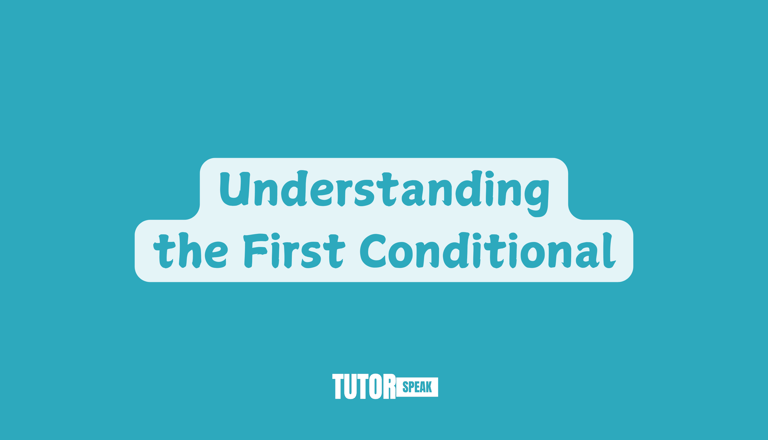Understanding the First Conditional
The first conditional is used to talk about real and possible situations in the future. It expresses a condition and its likely result. This type of sentence often describes future plans, promises, warnings, or predictions.
TutorSpeak
12/9/20242 min read


Understanding the First Conditional
The first conditional is used to talk about real and possible situations in the future. It expresses a condition and its likely result. This type of sentence often describes future plans, promises, warnings, or predictions.
Form of the First Conditional
The structure of the first conditional is:
If + present simple, will + base verb
"If" clause: Describes the condition (something that might happen).
Main clause: Describes the result (what will happen if the condition is met).
The order of the clauses can change without affecting the meaning. For example:
If it rains tomorrow, we will stay home.
We will stay home if it rains tomorrow.
Uses of the First Conditional
1. Predictions About the Future
Used to talk about something likely to happen.
Example:
If she studies hard, she will pass the exam.
2. Promises
Used to make a promise that depends on a condition.
Example:
If you help me, I will buy you lunch.
3. Warnings or Threats
Used to warn someone or express possible negative consequences.
Example:
If you don’t wear a coat, you will catch a cold.
4. Plans or Decisions
Used to talk about plans that depend on a specific condition.
Example:
If we finish early, we will go to the park.
Examples of the First Conditional
Here are more examples for better understanding:
If it’s sunny tomorrow, we will go to the beach.
If I see him, I’ll tell him the news.
If you don’t exercise regularly, you will feel tired.
If we save enough money, we will buy a new car.
If she doesn’t hurry, she’ll miss the bus.
Important Notes
Present Simple in the "If" Clause:
The condition is always expressed in the present simple tense, even though it refers to the future.Incorrect: If it will rain, we will stay home.
Correct: If it rains, we will stay home.
"Will" in the Main Clause:
The result or action is expressed using "will + base verb."
Practice Exercises
Exercise 1: Complete the sentences using the first conditional.
If it __________ (rain) tomorrow, I __________ (stay) at home.
If she __________ (study) harder, she __________ (get) better grades.
If we __________ (not leave) now, we __________ (be) late.
If I __________ (find) your wallet, I __________ (call) you.
If they __________ (win) the game, they __________ (celebrate) all night.
Exercise 2: True or False
Decide whether the following sentences are correct for the first conditional:
If I will see him, I’ll tell him the truth.
If we don’t hurry, we’ll miss the train.
If you eat too much, you’ll feel sick.
If the weather is good, we’ll go for a hike.
If she will help me, I’ll finish faster.
Exercise 3: Write first conditional sentences based on the prompts.
(If / it / snow / we / not go / hiking)
(If / he / pass the test / he / get a reward)
(If / you / call me / I / help you)
(If / we / not water the plants / they / die)
(If / she / arrive on time / we / start the meeting)



